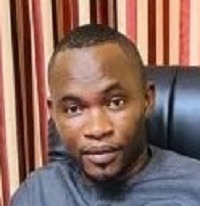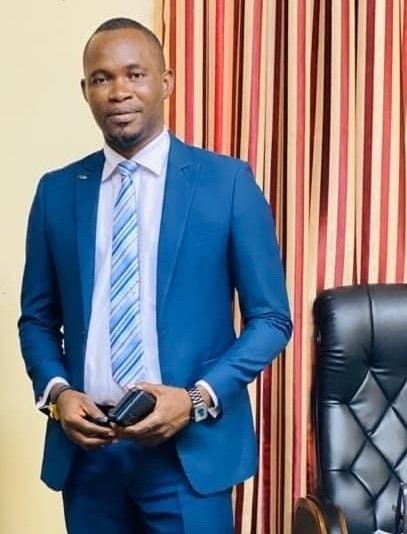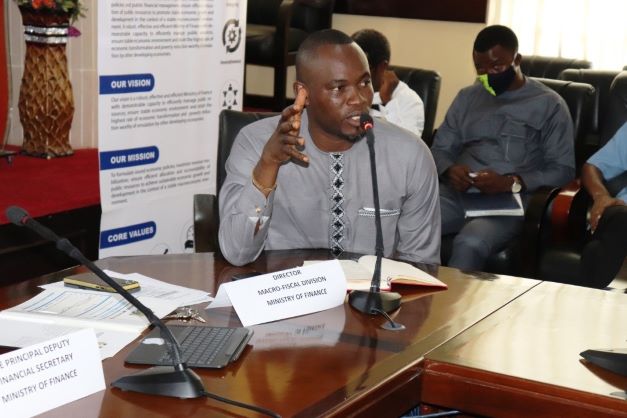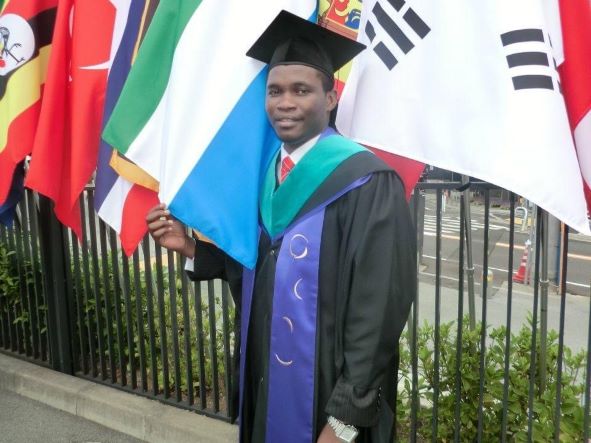 サミュエル・ボンズ
サミュエル・ボンズ
国際通貨基金(ワシントンDC駐在)
アフリカ局 特別任命官
One-year Master’s Program of Public Policy Program (MP1) (’11)
Please tell us about your career path to date. What is your area of specialization and how did you come to work in that area?

Ministry of Finance, Sierra Leone
My career path has been mixed but my main focus has been on policy areas. When I graduated in 2007, I became a banker with Zenith Bank Sierra Leone (Ltd.) as an Executive Assistant in the banking operations division. Subsequently I worked for the National Revenue Authority of my country, Sierra Leone, for about five years, in tax law and statute administration. At that stage I developed an interest in fiscal policy issues. In 2010, I was awarded a Japanese Government Scholarship for Research Students for the degree of Master of Public Policy, for study at GRIPS. When I completed my master’s degree, I immediately returned home and returned to work at the National Revenue Authority. Two years later, I secured a position as Senior Economist with the Bank of Sierra Leone, where I worked in the Research Department for three years. At that point I was awarded a Commonwealth Scholarship for PhD study at Royal Holloway, University of London. During my studies in the U.K, I served as a teaching assistant at both Royal Holloway, University of London, and University College London (UCL). My doctoral thesis, on the macroeconomics of fiscal policy in Sierra Leone, contained three empirical papers.
After I completed my PhD in 2018, I returned to Sierra Leone. In 2019, I was recruited by the civil service to the position of Director of the Macro-Fiscal Policy Division in the Ministry of Finance. I served in that role until January 2021, when I was recruited by the International Monetary Fund to serve as a Special Appointee in the African Department in Washington DC.

Launch of the Sierra Leone 2020 Economic Bulletin
Ministry of Finance Conference Hall, Freetown Sierra Leone
You are currently serving as Special Appointee in the African Department at IMF headquarters in Washington DC. What are your roles and responsibilities there?
In my work as Special Appointee in the African Department of the International Monetary Fund Headquarters, I am in the Southern 1 Constituency, working on Zimbabwe. My duties there include but are not limited to: updating balance of payment records and doing mid-term projections on the external sector; working with team members offering policy advice to the authorities towards restoring macroeconomic sanity and sustained growth (making recommendations such as creation of fiscal space, promotion of financial sector stability, reduction of inflation, and achievement of debt sustainability).
What are some of the biggest challgenges you face in your work? And what have been the most interesting or rewarding aspects of your career thus far?
As you may be aware, working in an international organization for the first time is challenging. You move to an entirely new environment, and meet people from diverse backgrounds. I was able to navigate those challenges thanks to my experience living in Japan and the United Kingdom. The most interesting aspect of my job is that I have the opportunity to meet people who are working at the frontier of economic policy, people who are advising governments all over the globe on the management of their economies. It is quite an enriching experience, seeing how countries are being assessed on their macroeconomic performance.
What are your professional goals for the next five to ten years?
I aim to continue working on national macroeconomic issues to help my country move ahead economically, and perhaps work with other economies to help them achieve sustained economic growth and long-term macro-economic stability.
What led you to GRIPS? What was the most important benefit of your studies here, and how did your experience at GRIPS prepare you for your endeavors?
When I graduated from Fourah Bay College, I was looking for a top university with renowned faculty where I could study for a master’s degree, broadening my awareness and building on my existing knowledge of economics and policy issues. GRIPS, being one of the top graduate school in economics and policy studies in Japan, emerged at the top of my list. GRIPS prepared me very well, equipping me with the economics tools and statistical techniques that I needed to successfully carry out independent research. My training at GRIPS served me well in my PhD studies in the United Kingdom, where I completed my doctoral degree in less than three years.
How do you maintain a balance between your work and the rest of your life? And what is your favorite activity when you are not working?
I am a father of two kids, so even though a lot is expected from me in my work, I have to find time for my family. When I’m not working, I spend time with my kids, going to the park or taking walks. Sometimes I watch movies and read—when I have free time.
What are some of your fondest memories of your time at GRIPS? And what do you miss about Japan?
I truly appreciate the time I spent at GRIPS. The professors were inspiring, passionate, and devoted to their work, and generously mentored the students to help them realize their potential. Through GRIPS’ numerous courses, workshops and GRIPS Forum events, and by writing policy papers, I was able to learn a lot of economic theory and methodology from my hard-working, dedicated professors. The administrative staff are friendly and always willing to help with whatever issues they can. Japan is a cultured society and a beautiful place to live. I miss the Japanese towns and cities. They are very clean with strict garbage separation rules. I also miss the excellent train system, vending machines, night clubs and technology.
What one piece of advice would you give to anyone considering studying at GRIPS?
Basically, if anyone is considering studying at GRIPS, my key advice is that you should be prepared to work hard. The course work at GRIPS is very intense: you’re required to complete many courses and the standards are high. You need to be dedicated and focus on your studies. Also, GRIPS offers many opportunities, from sightseeing to attending GRIPS Forums, where crucial economic, political, and social issues are discussed by policy makers and other specialists. Students should seize every opportunity in their time at GRIPS.
How would you like to continue your involvement with GRIPS? What do you expect from GRIPS as an alumnus? And do you have any suggestions as to how to enhance utilization of the GRIPS alumni network?
I intend to maintain a close relationship with GRIPS. I am part of the alumni network on both Facebook and LinkedIn. As a GRIPS alumnus, I appreciate the opportunity to serve as a GRIPS ambassador to my home country and to neighboring countries where there are few alumni. It’s important to disseminate information about the academic excellence offered in GRIPS. Also, I would encourage the idea of a sendoff program for future students in countries in my region who have been accepted to study at GRIPS. I am available to support GRIPS as an alumnus in whatever way I can.

GRIPS Graduation Day 2011





